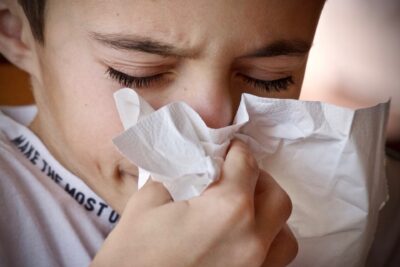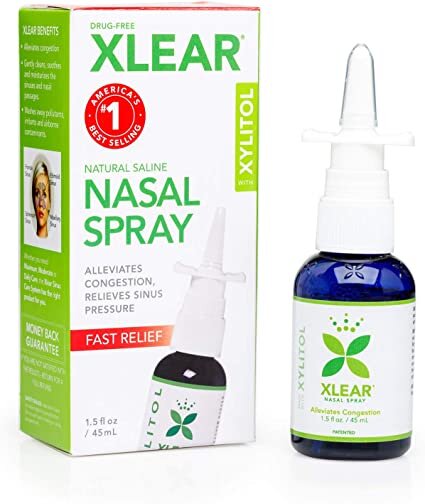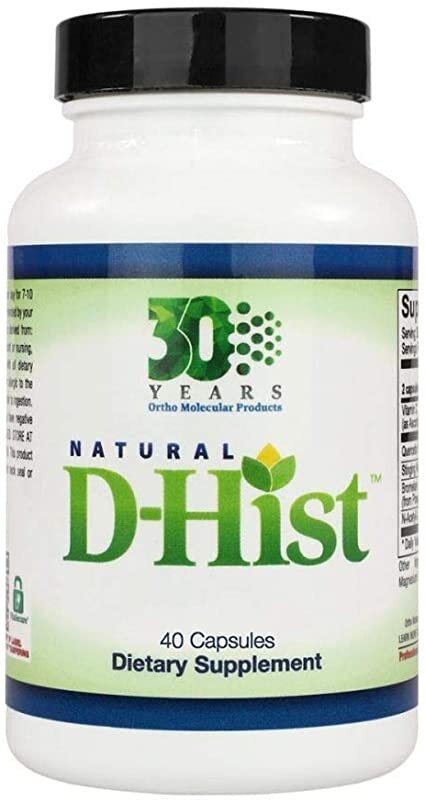It is indeed allergy season! Read on for the most common questions followed by actions you can start taking today towards relief.
Q: Many people are really struggling this spring with allergies. Things like headache, constant congestion, and runny nose, and we know the issues are seasonal because the symptoms only appear during spring (mostly) and fall. We already know over-the-counter antihistamine drugs have a lot of side effects such as drowsiness and listlessness (lethargy.) Do you know of some natural solutions that really work? There’s a lot of stuff on the internet, but we aren’t sure if any of them are effective. Or is there a way to take the drugs without all the side effects?
***************************************************
A: You are right about the side effects of typical anti-histamine medications. These drugs often leave a person feeling drugged, sleepy, or foggy-brained. They also can have other potent (but not often publicized) side effects such as dizziness, blurred vision, nausea, or making an enlarged prostate or a yeast infection worse. We encourage patients to avoid them whenever possible. And yes, there are several natural choices that we have seen make major improvement. Not only with seasonal allergy symptoms but also asthma and ongoing, chronic allergy.
The Physiology of Allergy
Our immune system can react with alarm to the protein in a particular type of pollen and develop antibodies to these “foreign invaders”. Think of antibodies as your body’s “Most Wanted” criminal list. Exposure to them then causes our mast cells to release histamine, triggering swelling of mucus membranes and the flow of mucus. Despite the discomfort, our immune system really does have our best interests at heart ! Mucus can flush unwanted substances out of the body and protects delicate tissue. The problem is that our immune systems can get overwhelmed, especially if clients are (1) chronically stressed, (2) consume lots of sugar/sweeteners/chemicals, and/or (3) are not well-rested (three factors which influence our immune system greatly).
The following conditions can put you at risk for Pollen Allergies
- asthma
- constipation
- unmanaged stress
- food allergies
- poor nutrition
- lack of exercise
- sleep deficit
- deviated septum
- nasal polyps
- recent trauma or illness
- pregnancy
All these conditions are a signs of inflammation. Let’s use the glass of juice analogy.
The body is the glass. The juice is inflammation. A body battling asthma, eczema, constipation, food allergies is like an overflowing glass of juice. Aka, a body full of inflammation. Allergies to pollen cause more inflammation. Thus when the trees bloom, the glass spills over and horrid allergy symptoms commence.
However, when the above conditions are addressed and inflammation is lowered, the body will resemble a glass half full of juice. Therefore, this body will be able to handle pollen allergies much better with a lot less symptoms.
Natural Solutions for Allergies
Eat Lots of These Foods
- fresh fruits: mango, pear, watermelon, apple, kiwi, cantaloupe, grapes, berries
- fresh vegetables, organic when possible, here is the list of the dirty dozen
- dairy substitutes: coconut milk, hemp milk, almond milk, rice milk
- cooking oils: olive oil, coconut oil
- leafy herbs
- organic, free range eggs
- gluten free grains: quinoa, rice, oats
- freshly wild caught fish
- freshly cooked organic poultry
- herbal teas such as Green Tea
The above foods are low histamine foods which means they are least likely to irritate the immune system. They are also power houses of Vitamins such as Vitamin C, Vitamin D, Magnesium, and Antioxidants such as Quercitin.
Dairy foods are mucus-producing in many people, hence a short term removal of these foods may provide some relief
Reduce or Avoid These Foods
These foods prevent the immune system from working properly. In order to avoid allergy symptoms, we need a strong immune system. One that doesn’t over-react or under-react.
- sugar
- caffeine
- bottled / store bought fruit juices (yes even organic)
- food preservatives
- decrease/avoid dairy and gluten (even non gmo, organic, grass fed, etc)Keep in mind too that dairy foods are mucus-producing in many people. You might want to embark on a trial, full elimination of all dairy foods (e.g. milk, cream, cheese) to see how it affects you, at least until the worst of the allergy season has passed.
- processed foods with ingredients that you can’t pronounce or have no idea what they mean
- cured meats
- wine, chocolate (wahhhh, we know!) and strawberries are all very high in histamine
Reduce your exposure to Pollen
- Wear a protective mask when gardening or doing yard work.
- Modify the indoor environment to keep out allergens. Use HEPA (high-efficiency particulate air) filters in air conditioners to better trap pollen spores. Change air condition filters often.
- Check pollen counts before you travel. To find pollen counts, go to the National Allergy Bureau (www.aaaai.org/nab)
- Protect your eyes. Wear sunglasses when outdoors to reduce the amount of pollen coming into the eyes,
- Wash your hair and shower at the end of the day to wash out pollens. This will help avoid pollen transfer to the pillowcase and bedding.
- Exercise in the morning or late in the day. Pollen counts typically are higher on a hot, windy, sunny day compared with a cool day without much wind.
- Check the pets, they are known pollen carriers.
- Leave your shoes at the door. Tracking in mud and pollen through the house will make symptoms worse. (This is my biggest challenge in my house, uhm uhm husband uhm)
Supplements
To access some of the items listed below click HERE.
Please speak with your functional medicine practitioner about what is appropriate for you. Some supplements can interfere with certain medications and/or other supplements.
- Nasal Saline rinse twice daily, will wash pollen out of nose, reduce symptoms, and decrease medication use by 62% (article). An effective way is to rinse your nose after coming in from outside to immediately get the pollen out.
- Vitamin D (preferably D3 with K2) Vitamin D, a critical vitamin for immune system function is found in Eggs, Salmon, Cod Liver Oil, Tuna, Sardines. Emerging evidence shows Vitamin D to increase the effectiveness of nasal corticosteroids in those suffering from Allergic Rhinitis (allergic runny nose) (article)
- Quercetin (pronounced kwehr’-suh-tin). It is best used as a long term remedy starting about 4-6 weeks before allergy season. (article) A natural extract from plant foods like onions, apples, berries, buckwheat, and citrus fruit, quercetin is technically a flavonol. These polyphenols help to determine a plant’s color – in this case, a bright yellow. Quercetin is a natural anti-histamine without the side effects of many medications! Quercetin actually calms the immune system to reduce or prevent histamine release. Several patients over the years with chronic seasonal allergies or asthma have found great relief. As an aside, quercetin is also being researched for circulation and cardiovascular health too, as it’s been shown to increase blood flow via artery dilation, promoting the release of nitric oxide. This action creates greater tissue oxygenation, nutrient flow, and waste removal. For this reason, it may also improve symptoms of fatigue and malaise due to poor circulation or in those with anemia or mild hypertension. Be cautious using quercetin, however, for those already taking blood thinners (e.g. Coumadin, Plavix, or daily aspirin). In a supplement, quercetin is often combined with bromelain, an extract from pineapples that is a potent anti-inflammatory that also calms the immune system and increases the effectiveness of quercetin. For seasonal allergies, we recommend clients start using quercetin right away to build up levels in their body and continue throughout the full allergy season. Consider starting with 1000 mg, taken twice daily on an empty stomach. Allergic reactions to quercetin are virtually unheard of; we believe this is a safe supplement to explore.
Quercetin actually calms the immune system to reduce or prevent histamine release
But quercetin has also been heavily studied in recent years because of its ability to heal intestinal permeability. This is especially helpful for those who may be prone to allergies/sensitivities in part because of the ongoing immune insults that having a leaky gut allows. This makes Quercetin a perfect two-solutions-in-one remedy!
- Stinging nettle leaf (very important: leaf, not root) has been shown to have effective ‘antihistamine’ action because it makes histamine receptors less sensitive. Because of this mode of action, we tend to use stinging nettle as a synergistic, additive pairing with an antihistamine like quercetin (vs. an agent on its own). This can be a powerful combination for more entrenched cases which don’t find sufficient relief via quercetin alone.
- Another excellent choice is the herb Butterbur. This one has actually been formally studied and found to be just as effective as Zyrtec at treating seasonal allergy symptoms. Unlike quercetin, butterbur is helpful because it is an anti-spasmodic remedy. Phytochemicals in butterbur relax swollen nasal membranes and alleviate muscle spasms in the respiratory system. When our immune system reacts to a perceived “foreign invader” (like an allergen), our cells produce inflammatory signaling molecules called leukotrienes (which usually happens in concert with the production of histamine, as mentioned above). Leukotrienes trigger spasms in the trachea which can help us to cough – to expel undesirable substances. Overproduction of leukotrienes, however, causes major inflammation in the respiratory system in the case of asthma and allergy. Butterbur simply interferes with the production of leukotrienes. Short-term use (3-4 mos) is generally regarded as quite safe; long-term use has not been studied. Note that butterbur is not suitable for pregnant or breast-feeding women (or for very young children less than six years of age). A typical therapeutic dose of butterbur extract is about 200mg/day (divided into an AM and PM dose for greater absorption). Mild headache or stomach ache may be side effects of butterbur and can be best avoided by taking it on a full stomach. Before you ask: yes, in very tough cases, it would be quite syergistic to pair these three agents together.
- Vitamin C, an antihistamine, is one of the most important antioxidants and immune enhancing nutrients to an allergy sufferer. Found in Red Peppers, Oranges, Kiwi, Melons. The effect of Vitamin C is enhanced when taken with Quercetin (article)
- Local Raw Honey, in those older then 12months old, has shown promise in the prevention of Seasonal Allergies (article). Honey ingestion is thought to help via Oral Sensitization. In other words, eating the allergen regularly can help the body recognize the specific allergen as a non threat. It is important to buy the honey locally, because pollen from Brazil won’t help much in New Jersey. The only exception is Manuka Honey from New Zealand due to it’s antibacterial, antimicrobial, and immune system boosting properties. Furthermore, make sure it’s raw. Processing destroys most of the nutrients.
- Last but not least, Omega-3’s found in Salmon, Free Range Eggs, Free Range Grass Fed Meats, Avocado, Olive Oil, Nuts. It has been shown to boost the immune system (article)
Adapted From the School of Applied Functional Medicine’s Clinical database and our colleague Dr. Ana Maria Temple



